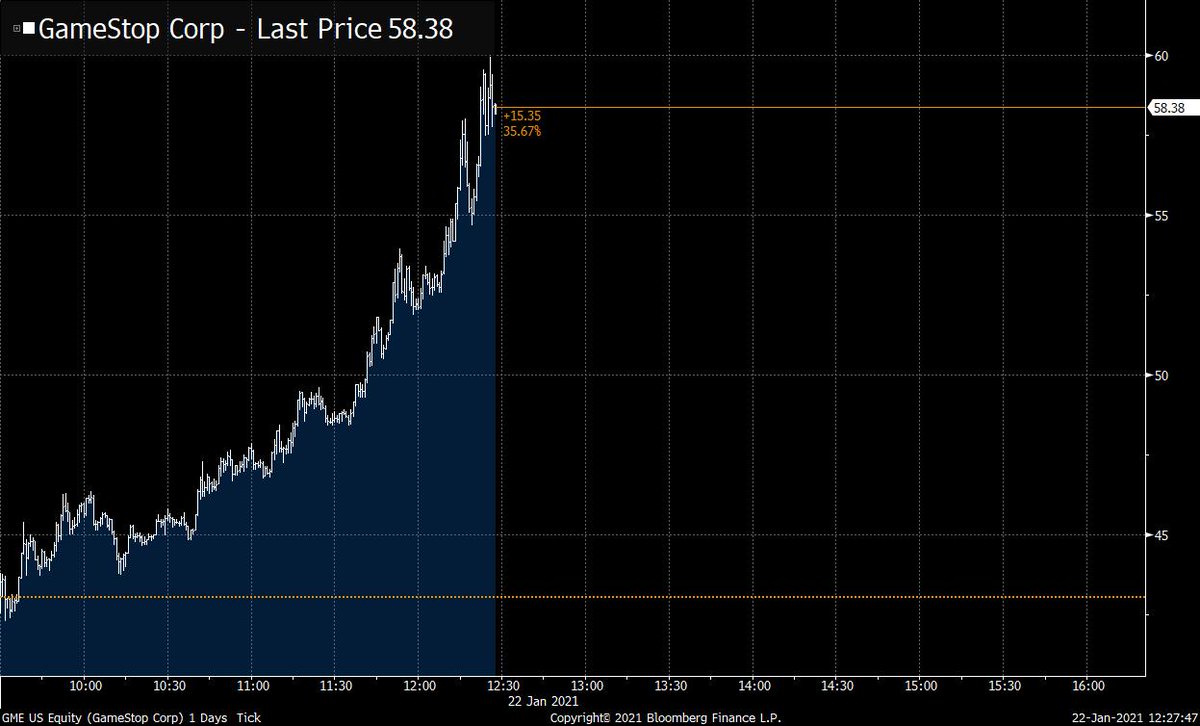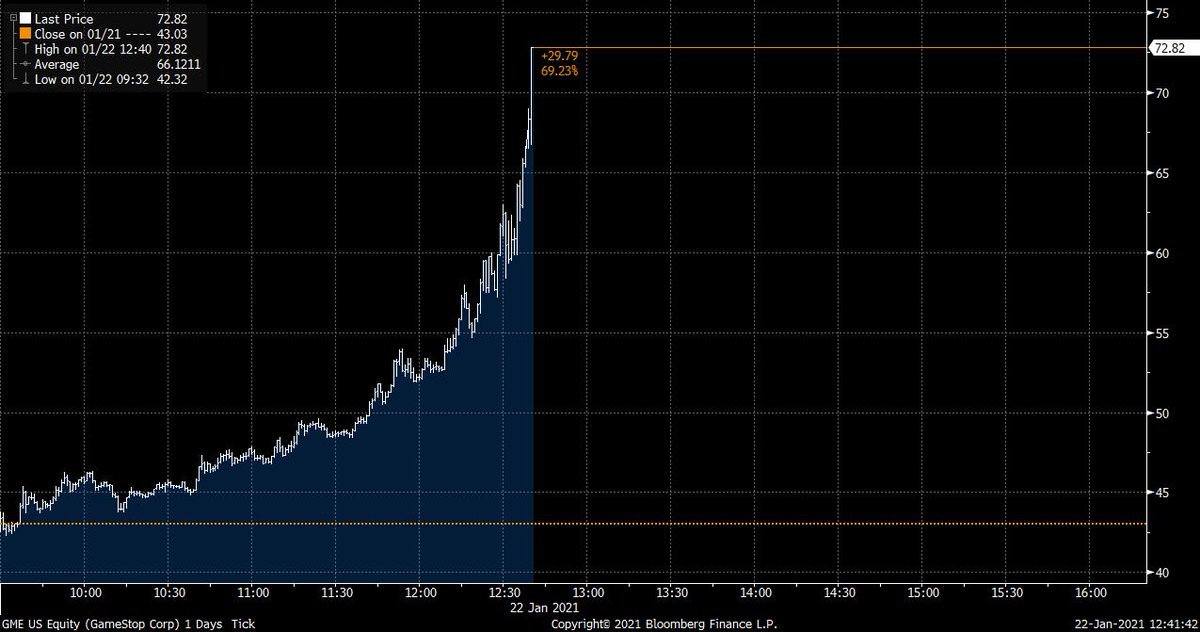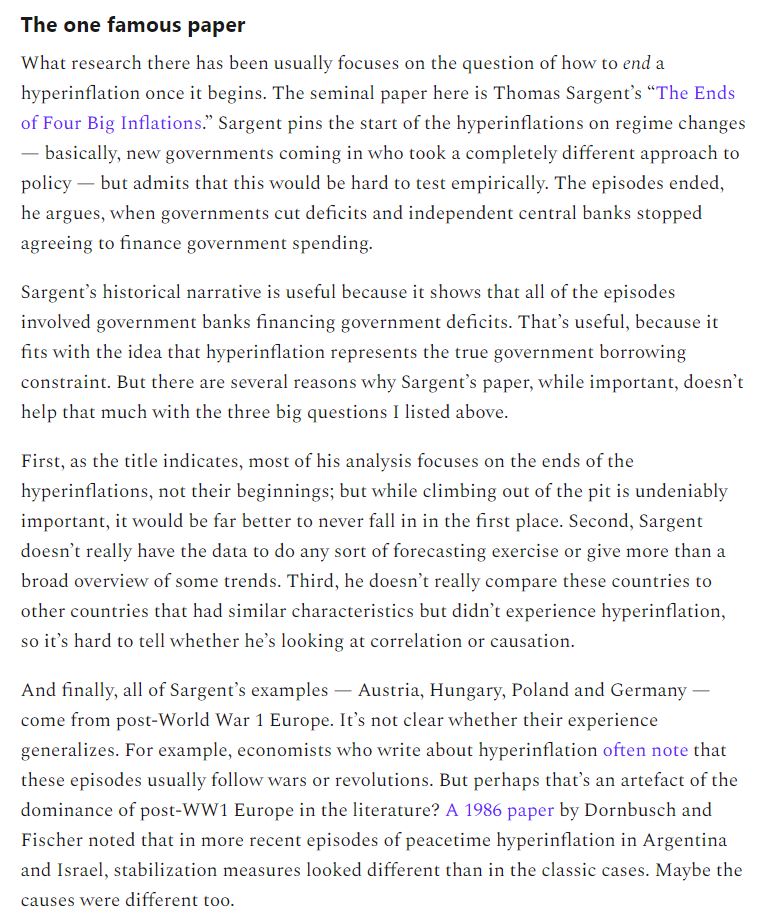
OMG $GME is up 35% now! bloomberg.com/news/articles/… 

MY GOD
*GAMESTOP EXTENDS GAINS, UP 50%, HIGHEST INTRADAY EVER
*GAMESTOP EXTENDS GAINS, UP 50%, HIGHEST INTRADAY EVER
60%!!!!!!!!!!!!!!!!!!!!!!!!!!!! bloomberg.com/news/articles/… 

They halted it at 69%!
*CIRCUIT BREAKER: GME (NYSE)-VOLATILITY TRADING PAUSE
*CIRCUIT BREAKER: GME (NYSE)-VOLATILITY TRADING PAUSE
This is RIVETING
• • •
Missing some Tweet in this thread? You can try to
force a refresh







